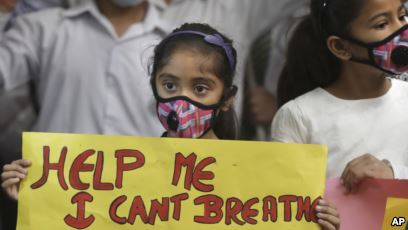Coal: The Good News and the Bad News

I’m reminded of a 90-minute interview I gave to a representative of the German state department a few years ago, who had come to the U.S. to speak with a few dozen “renewable energy experts” (I was flattered to have been considered one) in order to identify concrete steps that his country could take to widen its already substantial use of renewables.
I gave him a few ideas, which wasn’t easy, given, again, that Germany is already so proactive in this arena, and has, uncharacteristically, been willing to take considerable risks in doing so. But I told him in closing:
“The one thing I want you to take from our discussion here is that, in a strange but important sense, it matters very little what Germany does on its own and for itself, given your population of 80-or-so million, about 1% of the Earth’s total, unless those actions include creating a path to cleaning up the energy resources that are consumed in India and China. There is one world atmosphere and, for all intents and purposes, one world ocean. We either solve this problem on behalf of all 7.6 billion people on this planet (soon to be 9.9 billion), or we go down hard.
“The world has come to be organized into 200+ sovereign nation-states, and that may be fine in many arenas of human society; that’s a question for political scientists and historians. But for biologists, physicists and climate scientists, it’s a disaster, insofar as it impedes our preventing the impending environmental crises that include climate change, ocean acidification, the loss of biodiversity, and the damage to the health of all life forms on Earth, especially the more complex species like humans.
“If we’re going to have a civilization here in 50 – 100 years, it will be because we somehow figured out a way to work together as a team, and this is where Germany comes in: the onus is on the developed countries to share R&D resources, form some sort of world union, at least on an ad hoc basis, and nail this existential threat before it’s too late.
“Thanks very much for coming here today. Please take this idea home with you and do what you can with it.”

Craig,
I’m sure the German official took your advice on board when he next visited Russia and partnered with Putin to build a the world’s largest pipeline in the Baltic sea bed, so it would be easier for Germany to buy NG from Russia.
I’m sure he was equally conscious of your entreaties when purchasing wood pellets as bio-fuel from Russia involving the clear felling of irreplaceable forests to bolster the Russian military budget.
If only that evil President Trump would stop objecting to the largest EU and Nato member becoming dependent of Russian energy, the German government could go on pretending to be “Green”.
Trump should shut up and keep paying for Nato so Germany can partner with Putin on the US credit card.
It would also be so much easier to please muddle headed young German ‘green’ voters who would rather shout loudly than listen, think or learn.
President Trump promised to do his best to reinvigorate the US Coal industry, now after spending two years complaining how he failed, you suddenly discover he’s kept his word by exporting.
Exports of US coal help the US trade imbalance and economy, while providing considerable energy security to vulnerable nations like Latvia, Lithuania, Estonia, and the Ukraine. (Much to Russia’ frustration)
Coal is an essential source of energy for most nations, especially developing nations.
The problems associated with emissions can be remedied by the application of newly developed (and developing) Clean(er) Coal technology. Social problems created by a lack of industrial energy can’t be solved without a great deal of human misery.
We are wasting precious natural gas by converting this resource for energy generation. The world is desperately short of fertilizer resources. Natural Gas should be reserved for fertilizer production.
9.9 billion people require food ! Fertilizer is the key to industrial scale food production. The more the world becomes dependent of Natural Gas to generate electricity the more expensive it becomes to make high grade fertilizer.
Craig, the planet doesn’t have time or the luxury of waiting for Nirvana, we must place our faith in advanced of energy technology that is viable, practical and economically feasible.
If that be found in technically advanced coal fired generation or advanced thorium nuclear plants, then so be it !
Intermittent sources such as solar and wind along with localized sources such a geo-thermal, Hydro etc, are all important but can’t be considered as a panacea.
These technologies will always remain just contributors to a solution, lacking logistical and generating capacity, while creating future potential environmental problems of their own.
Researchers in India, China and South Korea, following the success of producing baking soda from the waste pollutant emission captured from coal fired generation, are now researching the potential to to produce fertilizer from the same feedstock.
Maybe it’s time you shelved your “War on Coal”, along with your your Vote For Obama campaign badges, and joined to those young scientists researching these practical solutions to the challenges of the future .